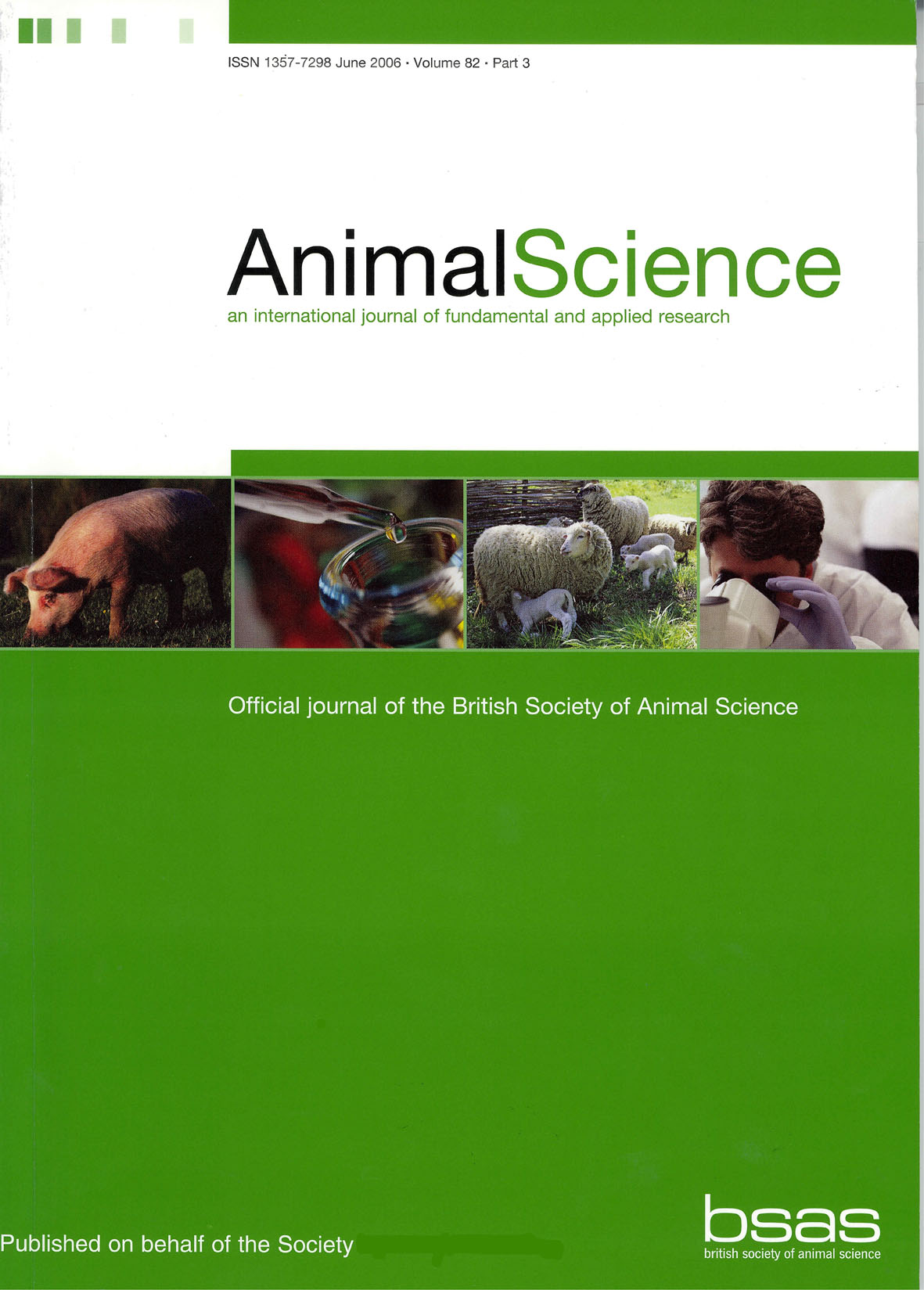Article contents
The effect of nutrition during early life on voluntary food intake by lambs between weaning and 2 years of age
Published online by Cambridge University Press: 02 September 2010
Abstract
Two experiments were carried out with Scottish Blackface lambs to investigate the effects of restricted nutrition during pregnancy and lactation on voluntary food intakes (VFI) between weaning and 2 years of age. Ewes were given diets providing 0·7 (LP) or 10 (HP) of their estimated metabolizable energy requirements during the last 6 weeks of pregnancy and subsequently grazed swards with mean sward surface heights of approximately 3 cm (LL) or 6 cm (HL) during lactation. All lambs were weaned at 17 weeks of age. In experiment 1, four treatment combinations (LP-LL, LP-HL, HP-LL and HP-HL) were applied and female lambs were studied. In experiment 2, two treatment combinations (LP-LL and HP-HL) were applied and male lambs were studied. In both experiments the lambs received a common level of nutrition between weaning and 2 years of age.
In both experiments, mean live weights were proportionately 0·2 higher for HP-HL than for LP-LL lambs at weaning (P < 0·001) and in experiment 2 mean live weights and body condition scores were still higher in HP-HL than in LP-LL lambs at 2 years of age (P < 0·05). Abomasum weights were higher in HP than in LP lambs at birth and higher in HP-HL than in LP-LL lambs at weaning in experiment 1 and the weights of the rumen and dimensions of the rumen villi were greater in HP-HL than in LP-LL lambs at weaning in both experiments (P < 0·05). The treatments had no effect on lipid content or mean adipocyte diameter in the main fat depots at birth or weaning. There were no treatment effects on VFI in either experiment. It was concluded that restricted nutrition during late pregnancy and early lactation does not affect VFI between weaning and 2 years of age in sheep, even though there are differences in live weight and the development of the gastrointestinal tract at weaning and there may be long-term effects on live weight and body condition, particularly in male animals.
- Type
- Research Article
- Information
- Copyright
- Copyright © British Society of Animal Science 1998
References
- 11
- Cited by


